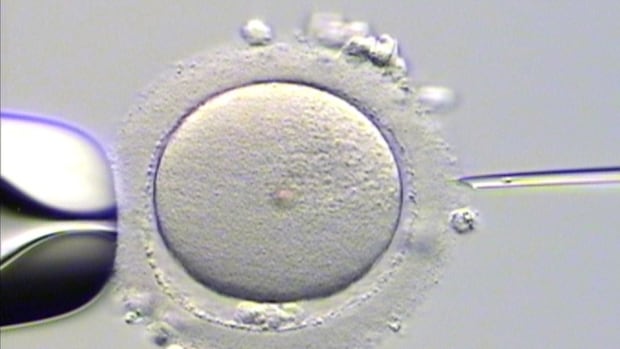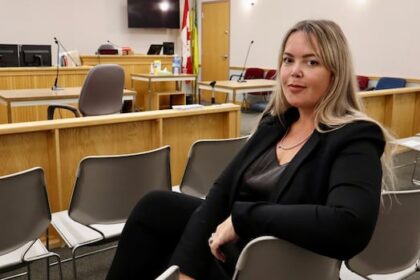Nova Scotia·NewAtlantic Fertility in Halifax is now offering fertility preservation to pediatric patients who are about to have chemotherapy or radiation.Atlantic Fertility says it’s one of the first in Canada to offer the service to pediatric cancer patientsCBC News · Posted: Sep 21, 2025 5:00 AM EDT | Last Updated: 30 minutes agoOfficials with Atlantic Fertility say a lot of the treatments used in dealing with childhood cancers can cause reduced or complete infertility in those patients in their adult years. (Submitted by Dr. Thomas Hannam)A Nova Scotia clinic is helping give young cancer patients a better chance to one day have children of their own.Atlantic Fertility is now offering fertility preservation to pediatric patients who are about to have chemotherapy or radiation. The facility says it’s one of the first in Canada to offer the service, which can sometimes involve freezing ovarian or testicular tissues.Dr. Megan Dufton, an embryologist and lab director at the Halifax clinic, said in an interview with Information Morning Nova Scotia that many of the treatments used in dealing with childhood cancers can cause reduced or complete infertility in those patients in their adult years.”The idea is to preserve this tissue when they’re younger for use when they reach adulthood and are ready to start families,” Dufton said.There’s a varying age range of young clients who are looking for fertility preservation, and a variety of techniques that can be used to help them, she said.Dr. Megan Dufton is the laboratory director at Atlantic Fertility. (StrykeforsePhotography)If a pediatric cancer patient has reached adolescence, the clinic may recommend typical egg retrieval or semen collection options. For even younger patients, however, the clinic can recommend ovarian or testicular tissue cryopreservation, a process through which biological samples are frozen for long-term storage.The service is not free, but Dufton said funding support may be available through the IWK Health Centre. Ovarian tissue cryopreservation costs $4,150, while the fee for testicular tissue cryopreservation is $2,200. An annual storage fee for either type of sample is $475.Dufton said tissue samples are collected at the IWK and sent to the clinic, where they’re put into a special media that removes water and replaces it with protectants. The samples are then placed in a special device and dunked into liquid nitrogen, which at –196 C stops biological processes and preserves the samples for decades.Supports for young patientsWhen preparing young cancer patients for the possibility of fertility preservation, Dufton said a team at the IWK works with them to explain what the process entails. If they’re interested in moving forward, a dialogue can begin with physicians at the clinic.If a patient decides in the future that they no longer want the tissue stored, it’s discarded. The process is different if the young patient were to die, she said.”Gametes or frozen tissue are viewed as property in Nova Scotia by law. Typically it would be left to their next of kin, which is often their parents. And in an ideal scenario, this would be left in a will to their parents.”Dufton said the survival rate of frozen eggs through the thawing process is high at about 90 per cent. The fertilization rate from eggs that have been thawed is about 70 per cent, with about half resulting in usable embryos.With files from Information Morning Nova Scotia
Halifax clinic offers fertility preservation to young cancer patients











